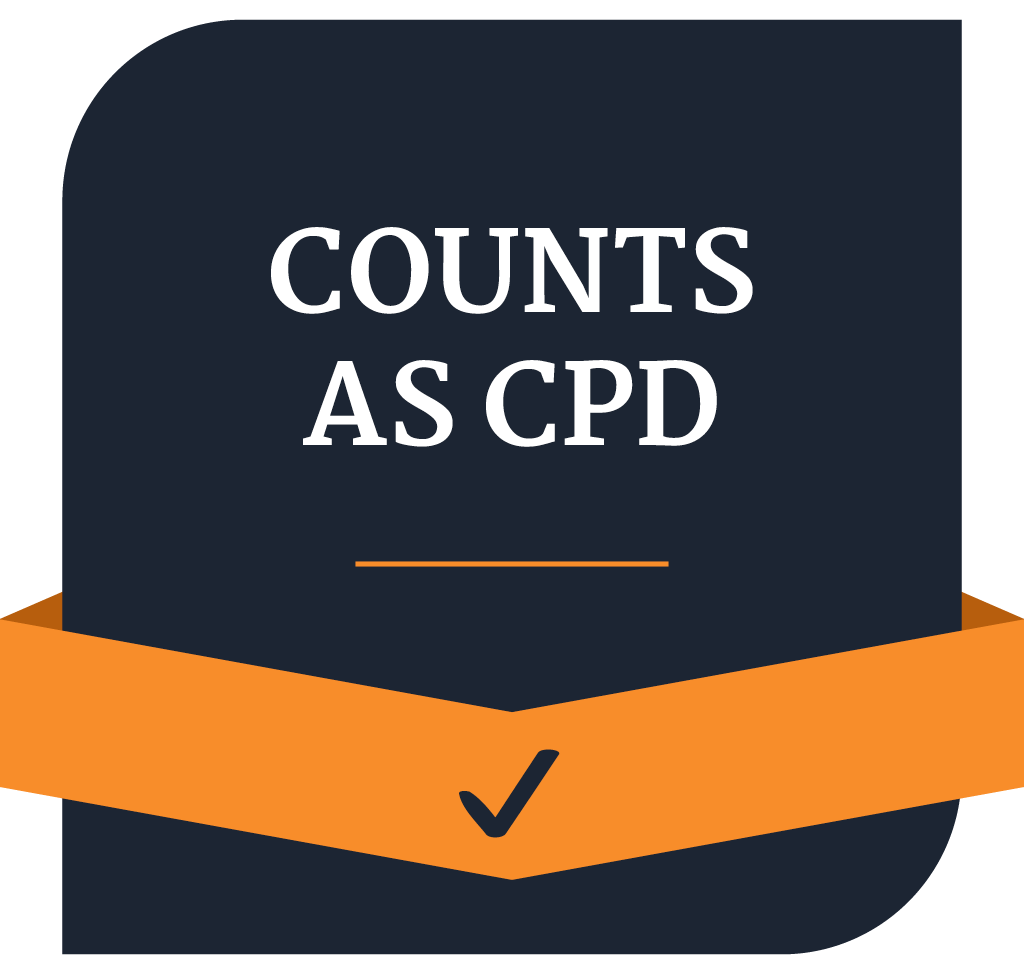Don’t get left behind

Don’t get left behind

The disruption currently being driven by technology, geopolitics and global economics is putting us all under pressure to keep up. And that’s particularly true of accountants in business, who must simultaneously adapt to the shifting goalposts of compliance, tax and financial reporting.
Yet in practice, it’s difficult to find practical, up-to-date guidance from multiple sources – especially when balancing daily responsibilities. That’s why demand for the next one-day Technical Update for Accountants in Business course is likely to be strong.
Course leaders John Moffat CA and Claire Glover promise that attendees will leave with “valuable, actionable knowledge of what’s changing and what they need to do practically to meet the new regulations”, all wrapped up in a busy but convivial day alongside fellow finance professionals.
Moffat, an expert in financial reporting, will guide participants through the latest implications of the FRC’s periodic review of FRS 102. In particular, he’ll be looking at the practical application of revenue recognition and the five-step model under the revised FRS 102 framework, along with a closer look at lease accounting adjustments.
“Businesses that haven’t started preparing will need to act quickly, and attendees on the course will gain hands-on insights that can make a big difference”
John Moffat CA, JRM Training and Professional Services
“This is really useful for accountants tasked with implementing the changes because we go into plenty of practical detail,” says Moffat. “Businesses that haven’t started preparing will need to act quickly, and attendees on the course will gain hands-on insights that can make a big difference.”
Moffat has been steering accountants through this course for many years, constantly refreshing the content in line with new developments. This year, he’s joined for the first time by Claire Glover, who as Head of Tax Programmes at BPP brings significant expertise in the field. The pair have also teamed up to deliver this month’s Finance Directors’ Update course.
“That’s a half-day course focused on top-level insights for FDs,” says Glover. “This one is designed for the accountants who need to implement the changes in practice.”
What’s changing in tax?
Glover will address several key tax developments, including those ongoing from the Budget and spring statement.
“Salary sacrifice schemes remain a hot topic, especially when it comes to electric vehicle fleets,” she says. “As well as covering the broader issues, we’ll go into the detail of how to structure these schemes properly, and the pitfalls to avoid.”
Glover will also examine recent case law on R&D tax relief. “Rulings may relate to the old schemes, but they’re already shaping how we interpret the new merged regime,” she says.
Other highlights include:
• Changes to residency rules affecting overseas workday relief and payroll compliance – particularly relevant to businesses operating across borders, such as those in the oil and gas sector.
• Off-payroll working and the ongoing uncertainty around contractor status and supply chain compliance. “There is official guidance, but practical implementation remains challenging,” says Glover.
• International tax issues, particularly the OECD Pillar Two rules. “Even if your business isn’t directly affected, your suppliers or customers might be,” says Glover. And it’s important to understand the knock-on effects.
The course will also cover the carbon border adjustment mechanism, which already affects UK companies exporting to the EU but is likely to be fully in place in the UK by 2027. And as well as additional financial reporting insights from Moffat, the pair will scan the horizon for what might be coming up next – such as Making Tax Digital for companies, the potential implications of e-invoicing and the growing impact of AI.
“Attendees will leave with valuable, actionable knowledge of what’s changing and what they need to do practically to meet the new regulations”
Claire Glover, BPP
“There’s a lot of hype around AI,” says Glover. “But I’ve tested tax-related AI tools that produced horrendous answers. We’ll discuss what’s actually useful and what’s not. And of course, AI can only ever be as good as the data that you put into it.”
Moffat welcomes the return of the July course to an in-person format in Edinburgh, which he believes enhances the attendee experience. “These courses are discursive and adaptable,” he says. “If a particular topic generates interest, we take the time to explore it in more depth. And it’s a great networking opportunity. People learn from each other’s experiences – especially when they’re in the same room and can speak face to face.”
Technical Update for Accountants in Business is on 23 July in Edinburgh and online live on 3 October. Explore the course content and book your place
The disruption currently being driven by technology, geopolitics and global economics is putting us all under pressure to keep up. And that’s particularly true of accountants in business, who must simultaneously adapt to the shifting goalposts of compliance, tax and financial reporting.
Yet in practice, it’s difficult to find practical, up-to-date guidance from multiple sources – especially when balancing daily responsibilities. That’s why demand for the next one-day Technical Update for Accountants in Business course is likely to be strong.
Course leaders John Moffat CA and Claire Glover promise that attendees will leave with “valuable, actionable knowledge of what’s changing and what they need to do practically to meet the new regulations”, all wrapped up in a busy but convivial day alongside fellow finance professionals.
Moffat, an expert in financial reporting, will guide participants through the latest implications of the FRC’s periodic review of FRS 102. In particular, he’ll be looking at the practical application of revenue recognition and the five-step model under the revised FRS 102 framework, along with a closer look at lease accounting adjustments.
“Businesses that haven’t started preparing will need to act quickly, and attendees on the course will gain hands-on insights that can make a big difference”
John Moffat CA, JRM Training and Professional Services
“This is really useful for accountants tasked with implementing the changes because we go into plenty of practical detail,” says Moffat. “Businesses that haven’t started preparing will need to act quickly, and attendees on the course will gain hands-on insights that can make a big difference.”
Moffat has been steering accountants through this course for many years, constantly refreshing the content in line with new developments. This year, he’s joined for the first time by Claire Glover, who as Head of Tax Programmes at BPP brings significant expertise in the field. The pair have also teamed up to deliver this month’s Finance Directors’ Update course.
“That’s a half-day course focused on top-level insights for FDs,” says Glover. “This one is designed for the accountants who need to implement the changes in practice.”
What’s changing in tax?
Glover will address several key tax developments, including those ongoing from the Budget and spring statement.
“Salary sacrifice schemes remain a hot topic, especially when it comes to electric vehicle fleets,” she says. “As well as covering the broader issues, we’ll go into the detail of how to structure these schemes properly, and the pitfalls to avoid.”
Glover will also examine recent case law on R&D tax relief. “Rulings may relate to the old schemes, but they’re already shaping how we interpret the new merged regime,” she says.
Other highlights include:
• Changes to residency rules affecting overseas workday relief and payroll compliance – particularly relevant to businesses operating across borders, such as those in the oil and gas sector.
• Off-payroll working and the ongoing uncertainty around contractor status and supply chain compliance. “There is official guidance, but practical implementation remains challenging,” says Glover.
• International tax issues, particularly the OECD Pillar Two rules. “Even if your business isn’t directly affected, your suppliers or customers might be,” says Glover. And it’s important to understand the knock-on effects.
The course will also cover the carbon border adjustment mechanism, which already affects UK companies exporting to the EU but is likely to be fully in place in the UK by 2027. And as well as additional financial reporting insights from Moffat, the pair will scan the horizon for what might be coming up next – such as Making Tax Digital for companies, the potential implications of e-invoicing and the growing impact of AI.
“Attendees will leave with valuable, actionable knowledge of what’s changing and what they need to do practically to meet the new regulations”
Claire Glover, BPP
“There’s a lot of hype around AI,” says Glover. “But I’ve tested tax-related AI tools that produced horrendous answers. We’ll discuss what’s actually useful and what’s not. And of course, AI can only ever be as good as the data that you put into it.”
Moffat welcomes the return of the July course to an in-person format in Edinburgh, which he believes enhances the attendee experience. “These courses are discursive and adaptable,” he says. “If a particular topic generates interest, we take the time to explore it in more depth. And it’s a great networking opportunity. People learn from each other’s experiences – especially when they’re in the same room and can speak face to face.”
Technical Update for Accountants in Business is on 23 July in Edinburgh and online live on 3 October. Explore the course content and book your place





